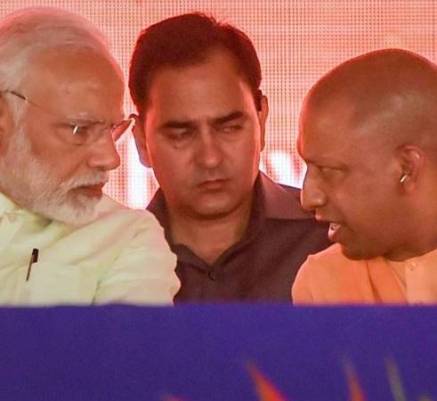  The BJP suffered a heavy blow and lost a prestige battle in the by elections. All political observers credit the party's loss to opposition unity. Amid the new united show, one key factor that slipped most discussions is anti-incumbency.
In the case of Kairana Lok Sabha by election, while giving credit to opposition unity, observers missed the basic numbers. In 2014 general elections, BJP candidate Hukum Singh got votes more than the combined votes of three political parties. It means that anti-incumbency, both at state and national levels has also played an important role in BJP's defeat.
In such a situation, it becomes important how BJP tackles fuel price rise. General elections will be held in less than a year. The government can’t antagonise its electorate. Petrol prices impact the general public. It is one commodity that has the biggest contribution to inflation. According to a study, a $10 per barrel hike in crude oil price in the international market increases WPI by 1.7 per cent. It reduces GDP by 0.2-0.3 per cent. It is important for the BJP that any hike in crude oil in international market should have minimum impact on common people in India.
Genesis of the problem
The main reason for the hike in petrol and diesel prices is high taxes imposed by both the Centre and state governments. The combined taxes imposed by the Centre and state are more than 100 per cent. For example, if dealer price of petrol is Rs 37 per litre in Delhi, then retail petrol price is Rs 76. The total tax is Rs 35.80 per litre, out of which Rs 19.50 is excise imposed by the central government, while state government’s tax is Rs 16.30.
The central government is filling its kitty with the petrol tax. It may not be good economics, especially when oil prices are increasing in international markets. Generally, people have no problem if the petrol prices are less than Rs 70.
Narendra Modi was lucky as far as crude oil prices are concerned. In 2013, oil prices reached $118 per barrel. When he became the prime minister, in May 2014, the prices declined and touch $30 per barrel in 2015. Even though retail prices of petrol and diesel are linked to the crude price in international market, the government increased taxes. The benefits of low crude prices were not passed on to the consumers.
The argument given by the government was that this money would be used for infrastructure development in the country and this will have a direct impact on the GDP.
It is not clear how much of it was used in infrastructure development. It is certain that it did not reflect in an increase in GDP. India witnessed one of the lowest GDP growths in the last couple of years.
What options does the government have?
The only option before the government is to reduce taxes. In most of the states, BJP has a government so it is not difficult to work with state governments and reduce taxes by at least Rs 10 per litre. If the BJP doesn’t want petrol prices to contribute to anti-incumbency, it will have to keep prices around Rs 60-65. In any case, it should not go beyond Rs 70 per litre.
As far as fiscal discipline is concerned, if Arun Jaitley made the budget assuming low crude price, then it was not a good planning. The Finance Ministry officials will have to do something about it. After all, collection from petrol tax has increased almost two-and-a-half times from FY 2014 to FY 2018. It is time to pay back to the general public. |